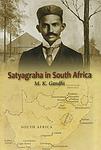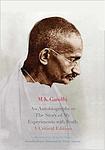The Greatest Dutch, Indian "Nonfiction" Books Since 1900
Click to learn how this list is calculated.
This list represents a comprehensive and trusted collection of the greatest books. Developed through a specialized algorithm, it brings together 300 'best of' book lists to form a definitive guide to the world's most acclaimed books. For those interested in how these books are chosen, additional details can be found on the rankings page.
Genres
Countries
Date Range
Reading Statistics
Click the button below to see how many of these books you've read!
Download
If you're interested in downloading this list as a CSV file for use in a spreadsheet application, you can easily do so by clicking the button below. Please note that to ensure a manageable file size and faster download, the CSV will include details for only the first 500 books.
Download-
1. The Diary of a Young Girl by Anne Frank
This book is a real-life account of a young Jewish girl hiding from the Nazis during World War II, written in diary format. The girl and her family are forced to live in a secret annex in Amsterdam for two years, during which she writes about her experiences, fears, dreams, and the onset of adolescence. The diary provides a poignant and deeply personal insight into the horrors of the Holocaust, making it a powerful testament to the human spirit.
-
2. The Waning of the Middle Ages by Johan Huizinga
"The Waning of the Middle Ages" is a historical analysis of the cultural life of the late Middle Ages, particularly in France and the Low Countries, during the 14th and 15th centuries. It delves into the period's modes of thought, forms of expression, religious beliefs, and social norms. The book argues that the era was characterized by a highly stylized and overwrought civilization, marked by an excessive emphasis on chivalry and courtly love, a religious mindset dominated by the fear of death and the afterlife, and a cultural milieu that was both highly imaginative and deeply pessimistic.
-
3. Satyagraha in South Africa by Gandhi
This book is a personal account of the author's experiences during the Indian struggle for civil rights in South Africa. It details the development and implementation of the concept of Satyagraha, or non-violent resistance, as a means of combating social injustice. The book provides a unique insight into the author's philosophies and strategies of peaceful protest, including his belief in the power of truth and the necessity of self-sacrifice in the fight against oppression.
-
4. The Story Of My Experiments With Truth by Mahatma Gandhi
This book is an autobiography that details the personal journey of a prominent leader who played a key role in India's struggle for independence from British rule. It explores his philosophy of nonviolent resistance and truth, which he refers to as "Satyagraha," and traces his development from a young, unsure boy into a principled activist committed to social justice. The narrative delves into his experiments with diet, celibacy, and other personal challenges, reflecting his quest for self-improvement and moral integrity, which he believed were essential for political leadership and social reform.
-
5. The Letters Of Vincent Van Gogh by Vincent van Gogh
"The Letters of Vincent van Gogh" is a compilation of correspondence that provides a deep and personal insight into the mind of one of the world's most famous and influential painters. Through these letters, primarily written to his brother Theo, the reader gains an intimate understanding of Van Gogh's thoughts on art, his emotional struggles, his aspirations, and the profound relationships he maintained throughout his turbulent life. The collection not only sheds light on his creative process but also reveals his reflections on existence, his financial difficulties, and his relentless pursuit of his artistic vision, offering a poignant look at his world from his own perspective.
-
6. My Story by Kamala Das
"My Story" is an intimate memoir that delves into the life of a woman navigating the complexities of her existence in mid-20th century India. It candidly explores themes of love, marriage, and womanhood, as the author recounts her journey from a young girl to a renowned poet and writer. The narrative is marked by its honesty and emotional depth, addressing the author's unconventional choices and her search for personal freedom amidst the constraints of a traditional society. Her reflections on sexuality, fidelity, and the literary world offer a poignant look at the challenges faced by women in asserting their identity and creativity.
-
7. Homo Ludens: A Study of the Play-Element in Culture by Johan Huizinga
"Homo Ludens: A Study of the Play-Element in Culture" is a comprehensive exploration of the significance of play in human culture. The author argues that play is not just a childhood activity but a crucial component of societal development and cultural evolution. He delves into various aspects of culture such as law, war, knowledge, poetry, and philosophy, demonstrating how each has been influenced by elements of play. The author's thesis is that understanding the role of play in our culture is essential to understanding human nature itself.
-
8. Resources, Values And Development by Amartya Sen
"Resources, Values, and Development" is a comprehensive examination of the interplay between the availability of resources, the values that guide their use, and the resulting impact on development. The book challenges traditional economic measures of development, such as GDP, and argues for a broader understanding that incorporates human welfare and freedom. It delves into the role of ethics in economics, the importance of individual capabilities, and the need for equity in the distribution of resources. The author's influential ideas on development economics and social choice theory are presented, advocating for a more humane and inclusive approach to economic development that prioritizes the enhancement of human lives over mere economic growth.
-
9. Development As Freedom by Amartya Sen
The book in question is a seminal work in the field of economics and development studies, which argues that true development is best understood as the process of expanding the real freedoms that people enjoy. It challenges traditional indicators of growth, such as GDP, suggesting that they fail to capture the essence of human well-being. Instead, it posits that development should be assessed by the range of choices available to individuals, including access to education, healthcare, and the ability to participate in the economic and political life of society. The author emphasizes the interdependence of various types of freedoms, from political rights to economic opportunities, and the role they play in empowering people to live the lives they value.
-
10. Infidel by Ayaan Hirsi Ali
The book is a powerful memoir of a woman who was born into a traditional Muslim family in Somalia. She recounts her experiences of growing up in a strict Islamic culture, female genital mutilation, civil war, fleeing to the Netherlands as a refugee, and her eventual rejection of her faith after witnessing its violent and oppressive nature. The book also follows her journey into politics and advocacy for women's rights and her efforts to reform Islam. It's a tale of courage, resilience, and the quest for freedom and truth.
-
11. Delhi by Khushwant Singh
"Delhi" by Khushwant Singh is a captivating exploration of the city's rich history, culture, and people. Through vivid anecdotes and personal experiences, the author paints a vivid picture of Delhi's transformation from ancient times to the present day. From the Mughal era to British rule, and the struggles of Partition, Singh delves into the city's tumultuous past while highlighting its enduring charm. With a blend of wit and nostalgia, this book offers readers a delightful journey through the vibrant streets, monuments, and diverse communities that make up the heart of Delhi.
-
12. Darwin's Dreampond by Tijs Goldschmidt
The book explores the dramatic impact of human intervention on the ecosystems of Lake Victoria, focusing particularly on the cichlid fish species. The author, an evolutionary biologist, recounts his fieldwork in the 1980s, observing firsthand the ecological and evolutionary changes resulting from the introduction of the Nile perch, a predatory fish. This event led to the extinction of numerous cichlid species, which had been remarkably diverse and a key example of adaptive radiation. The narrative combines scientific observation with reflections on the broader implications of biodiversity loss and the complex relationship between humans and the natural world.
Reading Statistics
Click the button below to see how many of these books you've read!
Download
If you're interested in downloading this list as a CSV file for use in a spreadsheet application, you can easily do so by clicking the button below. Please note that to ensure a manageable file size and faster download, the CSV will include details for only the first 500 books.
Download









